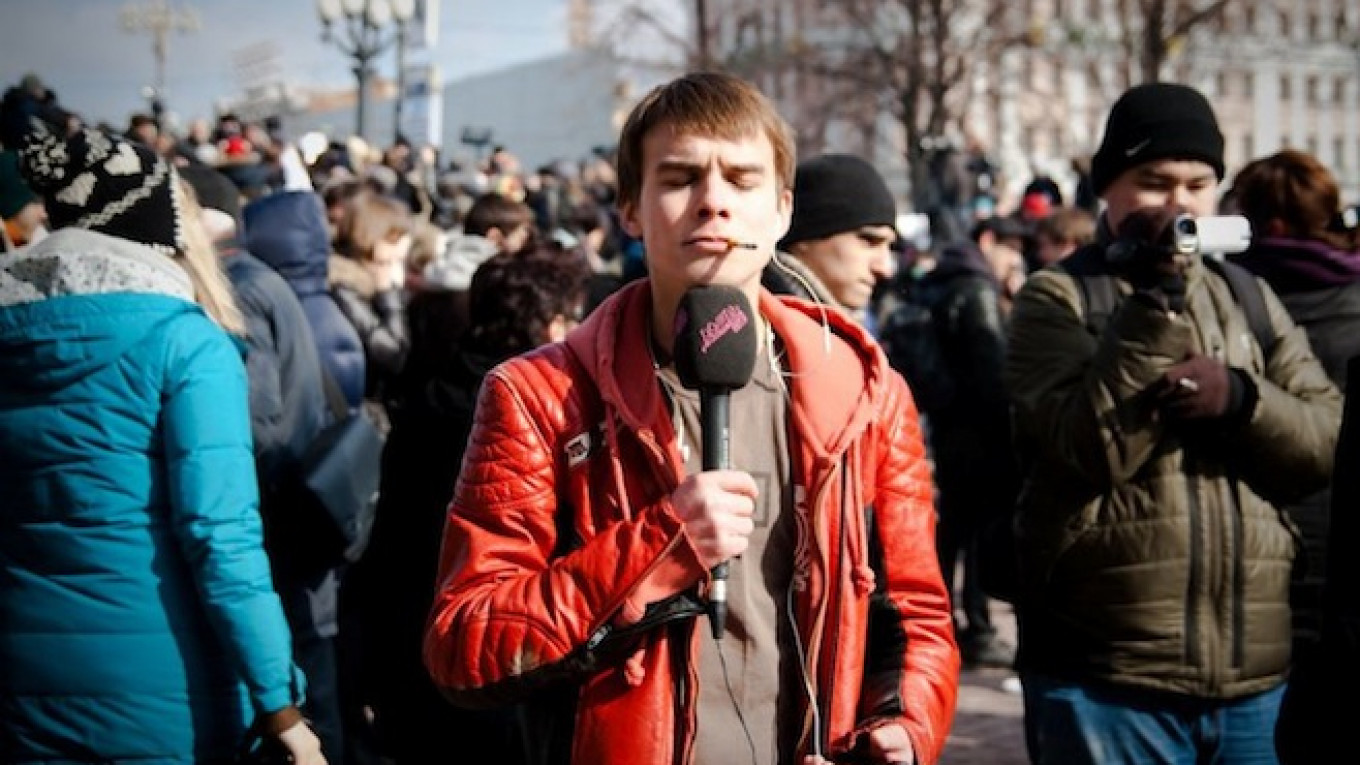Somebody does not seem to like journalists asking questions about the deaths of Russian paratroopers allegedly killed in eastern Ukraine.
Russian journalists Vladimir Romensky from the independent Dozhd television channel and Ilya Vasyunin from the Russkaya Planeta news site said they were attacked, threatened and told to leave town when they arrived Tuesday at a cemetery in Russia's Pskov region where at least two of the paratroopers had been buried a day earlier. Other journalists reported similar incidents throughout the day.
The accounts added to the mystery surrounding the circumstances of the paratroopers' deaths and the broader issue of the extent of Russia's involvement in Ukraine.
In a fierce war of rhetoric where few things can be proven as fact, Ukraine claims that the paratroopers were killed in its eastern town of Luhansk after being dispatched there by Moscow to help pro-Russian separatists. Russia denies having lost any troops in Ukraine and dismisses as fake any evidence of paratroopers' deaths in Luhansk, such as military documents allegedly found at the scene.
Video footage from the Pskov cemetery broadcast by Dozhd on Tuesday showed two young men in hooded jackets apparently trying to block the way of the journalists' car and banging against its windows.
The attackers slashed the car's tires, but the news crew managed to drive away, Romensky said in a newscast carried by his employer. Besides Romensky and Vasyunin, journalists from the Novaya Gazeta newspaper and St. Petersburg's Fontanka news agency were also in the car, Dozhd reported.
The scrap followed another incident earlier in the day, when Romensky and others tried to talk with paratroopers' families — only to be approached by unidentified young men and told to leave town, Romensky said, adding that the families refused to speak to reporters.
The men told journalists to "head to the train station and take the first train back to Moscow," Romensky said.
Instead, the news crew headed to the cemetery, only to run into another group of young men who appeared to have been waiting for them there and started making threats, he said.
Vasyunin said in a Twitter message that he and his colleagues "just got promised that if we don't leave Pskov, 'there are many swamps here,' 'we won't be found,' and 'no need to look into anything.'"
Police have collected fingerprints from the outside of the car and are investigating, Romensky told Dozhd.
In yet another incident, chief editor of St. Petersburg's Telegraf news agency, Sergei Kovalchenko, also reported having been attacked in Pskov by unidentified men, Slon.ru reported.
"There were two attackers. They took my camera," Kovalchenko was quoted as saying, adding that he filed a police report. The identity of the alleged attackers remains uncertain.
Ekho Moskvy radio host and deputy chief editor Vladimir Varfolomeyev said in a Twitter message that the "attack by bandits against journalists in Pskov only confirms suspicions about local paratroop divisions' participation in the war against Ukraine."
In a separate case also involving Russian paratroopers, Ukraine has announced capturing 10 Russian soldiers on its territory and published video interrogations with the men.
Following reports by unidentified officials in the Russian military that the captured troops had strayed into Ukraine by "accident," President Vladimir Putin said that the men may have crossed into Ukraine while patrolling the border, and expressed hope that the incident would soon be resolved, Interfax reported Wednesday.
See also:
Putin Downplays Reports of Russian Soldiers Captured in Ukraine
A Message from The Moscow Times:
Dear readers,
We are facing unprecedented challenges. Russia's Prosecutor General's Office has designated The Moscow Times as an "undesirable" organization, criminalizing our work and putting our staff at risk of prosecution. This follows our earlier unjust labeling as a "foreign agent."
These actions are direct attempts to silence independent journalism in Russia. The authorities claim our work "discredits the decisions of the Russian leadership." We see things differently: we strive to provide accurate, unbiased reporting on Russia.
We, the journalists of The Moscow Times, refuse to be silenced. But to continue our work, we need your help.
Your support, no matter how small, makes a world of difference. If you can, please support us monthly starting from just $2. It's quick to set up, and every contribution makes a significant impact.
By supporting The Moscow Times, you're defending open, independent journalism in the face of repression. Thank you for standing with us.
Remind me later.


